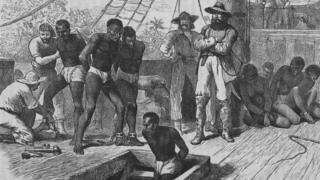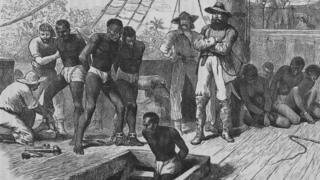News Updates
Last survivor of US slave ships identified
http://www.bbc.co.uk/news/education-47791828

 Image copyright
Image copyright
Getty Images
The last known survivor of the transatlantic slave ships, brought to the US in 1860, has been identified by an academic at Newcastle University.
Redoshi, kidnapped from West Africa by slave traders, lived until 1937 in Alabama, staying on the plantation where she had been enslaved.
Hannah Durkin made the discovery while researching first-hand accounts, archives and census records.
The previous last known survivor had been a former slave who died in 1935.
Image copyright
Getty Images
A statue commemorating the victims of slavery taken from ports in Benin, West Africa
Redoshi was kidnapped from a village in what is now Benin when, Ms Durkin believes, she was 12 years old.

Real Life. Real News. Real Voices
Help us tell more of the stories that matter
Become a founding memberShe was transported on one of the last slave ships to go to the US, along with more than 100 other men, women and children.
When she arrived in the US, she was bought by an Alabama banker and plantation owner and became known as Sally Smith.
Even though slavery was abolished five years after her arrival, Redoshi remained working on the same estate, with her husband, who had also been abducted from West Africa, and their daughter.
Lost voices
Ms Durkin says some details of Redoshi’s story had been recorded in the 20th Century, when historians and civil rights activists began to document the experiences of the last generation of slaves brought from Africa.
Putting together the pieces of the story, and matching it with census and public records, Dr Durkin found that Redoshi had lived in Selma, Alabama, until her death, at about 89 or 90.
There would be slaves who lived later, such as those born into slavery as children, but none of those abducted from Africa is so far known to have lived later than Redoshi.
Redoshi’s stories recorded living a peaceful life before being seized by members of another local tribe and brought to slave traders.
She faced a slave regime of “beatings”, “whippings” and “killings” but, Ms Durkin’s research says, there are glimpses of her resistance, showing she passed on some of her first language to her daughter and maintained her African culture and identity.
“It’s only one voice but this gives us a semblance of a voice for those who were otherwise lost,” says Ms Durkin.

Subscribe to the newsletter news
We hate SPAM and promise to keep your email address safe

